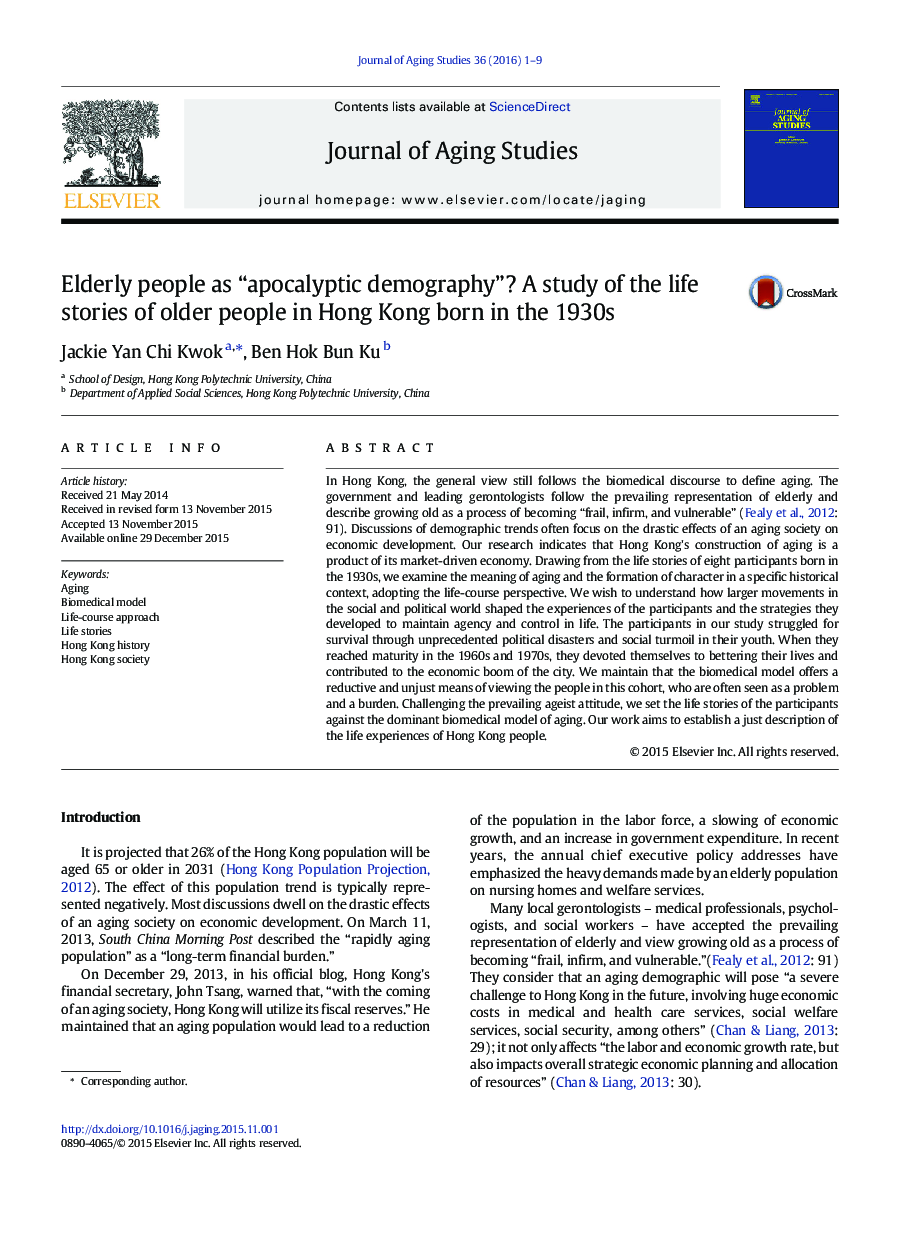| کد مقاله | کد نشریه | سال انتشار | مقاله انگلیسی | نسخه تمام متن |
|---|---|---|---|---|
| 1081789 | 1486765 | 2016 | 9 صفحه PDF | دانلود رایگان |
• Drawing from the life stories of eight participants born in the 1930s, we have examined the meaning of aging and the formation of character in a specific historical context, adopting the life-course perspective.
• We have conducted in-depth face-to-face interviews with the informants and they were encouraged and gradually able to narrate their life stories from early childhood to post-retirement in their own words.
• We have discovered the strategies the participants developed to maintain agency and control in life.
• The eight life stories presented in this article illustrate the basic assumptions of the life-course theory: life is an interplay of structures, history, context, and experience (Grenier, 2012).
• Our research challenges the assumptions underlying the biomedical discourse on aging generally adopted in Hong Kong. The policy makers and dominant gerontologists rarely look back and consider the contributions that this cohort made to society. Nor do they look into the future: comparative studies of the present cohort of seniors and the upcoming cohort are lacking. Our work aims to establish a just description of the life experiences of Hong Kong people.
In Hong Kong, the general view still follows the biomedical discourse to define aging. The government and leading gerontologists follow the prevailing representation of elderly and describe growing old as a process of becoming “frail, infirm, and vulnerable” (Fealy et al., 2012: 91). Discussions of demographic trends often focus on the drastic effects of an aging society on economic development. Our research indicates that Hong Kong's construction of aging is a product of its market-driven economy. Drawing from the life stories of eight participants born in the 1930s, we examine the meaning of aging and the formation of character in a specific historical context, adopting the life-course perspective. We wish to understand how larger movements in the social and political world shaped the experiences of the participants and the strategies they developed to maintain agency and control in life. The participants in our study struggled for survival through unprecedented political disasters and social turmoil in their youth. When they reached maturity in the 1960s and 1970s, they devoted themselves to bettering their lives and contributed to the economic boom of the city. We maintain that the biomedical model offers a reductive and unjust means of viewing the people in this cohort, who are often seen as a problem and a burden. Challenging the prevailing ageist attitude, we set the life stories of the participants against the dominant biomedical model of aging. Our work aims to establish a just description of the life experiences of Hong Kong people.
Journal: Journal of Aging Studies - Volume 36, January 2016, Pages 1–9
